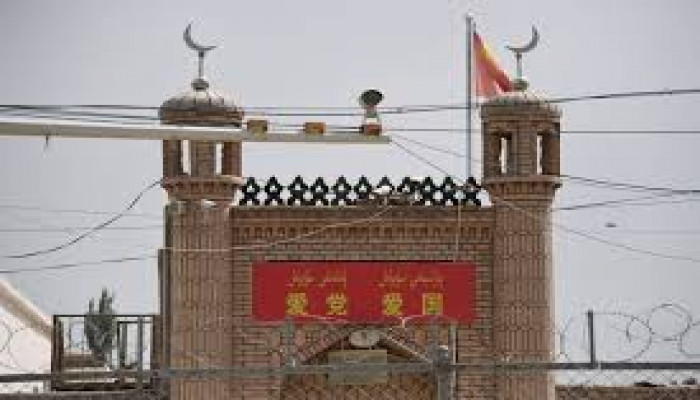Mosques demolished, texts censored; China is repressing Muslims in Xinjiang
- In Reports
- 09:18 PM, May 28, 2024
- Myind Staff
The Chinese government's repression of the Islamic faith, especially targeting the Uyghur Muslim community in Xinjiang, has drawn widespread international criticism and condemnation due to allegations of human rights violations and cultural genocide.
A recent investigation by the UK's Sky News has exposed China's escalating control over Islamic practices within the country. The report highlights the growing restrictions and surveillance imposed on Muslims, especially in areas with substantial Islamic populations. One striking scene in the report features a local Muslim leader standing alone in the courtyard of a small mosque in a cold, dusty region of central China.
"Religion is dying," he laments, emphasising the severe constraints the Chinese government imposes on religious activities. The report details the intensified efforts by Chinese authorities to monitor and restrict Islamic practices, including demolishing mosques, banning religious attire, and censoring Islamic texts. This crackdown is part of a broader campaign to align religious practices with state ideology and suppress any potential dissent.
The Chinese authorities have implemented several measures to curb the practice of Islam- demolition of Mosques, banning religious attire and censoring Islamic texts
Numerous mosques have been demolished, especially those that fail to meet the government's architectural standards or are considered too conspicuous. Traditional Islamic clothing, such as headscarves and long beards, has been banned in certain regions. The government has censored Islamic texts, removing any content perceived as promoting extremism or dissent. This includes altering the Quran and other religious literature to align with the state's narrative.
This is part of an effort to assimilate Muslims into the broader Han Chinese culture. The report also highlights the extensive surveillance network monitoring Muslim communities. High-tech surveillance systems, including facial recognition cameras, are widespread in areas like Xinjiang, home to a significant Uyghur Muslim population. These systems track individuals' movements and behaviours to ensure strict compliance with government regulations.
The restrictions have permeated all aspects of daily life for Muslims in China. Religious education for children has been heavily regulated, leading to the closure of many religious schools. Additionally, community leaders and imams are required to attend government-run reeducation programs to ensure they propagate state-approved messages, according to the Sky News report.
The international community has responded with concern over China's treatment of its Muslim population. Human rights organisations have condemned these actions, calling for greater transparency and respect for religious freedoms. The Chinese government, however, maintains that these measures are necessary to combat extremism and ensure national security.
Image Source: Foreign Policy







Comments